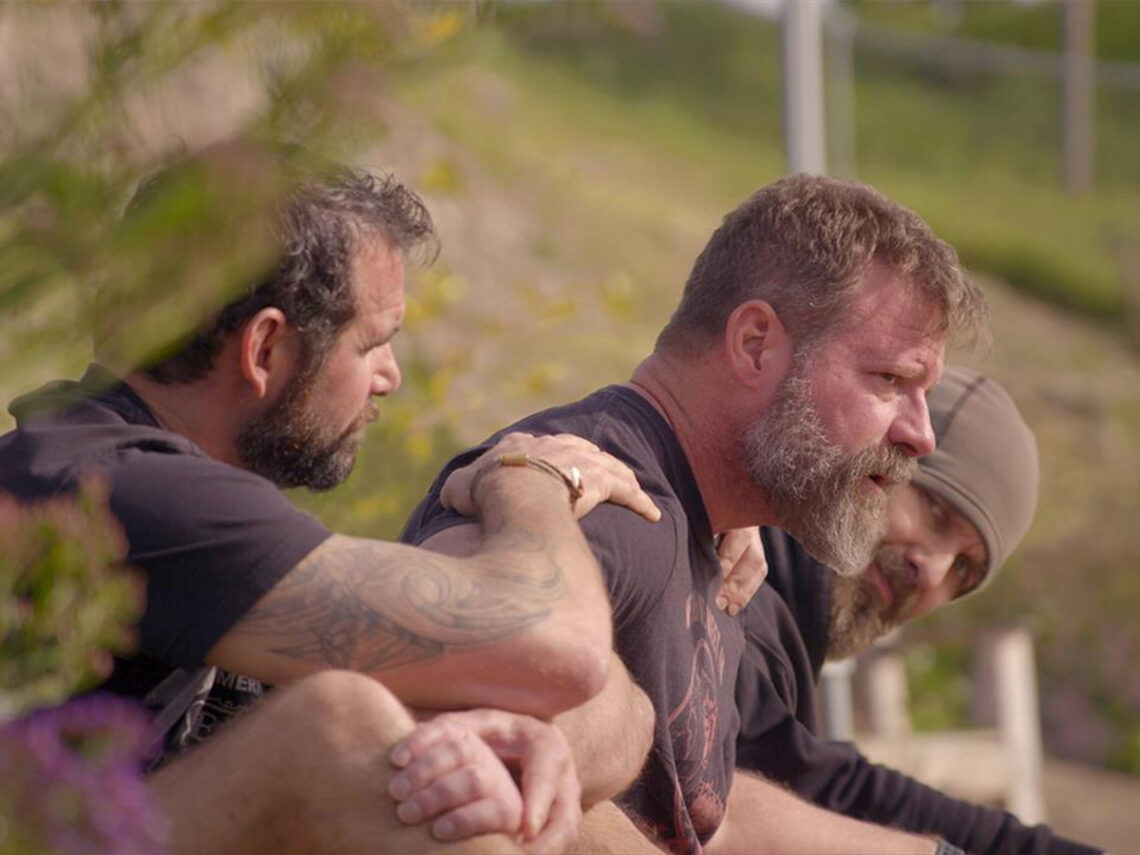
The gripping true story behind ‘In Waves and War’ on Netflix
Netflix recently released a groundbreaking documentary, In Waves and War, on November 3rd, which has generated significant buzz online. The project focuses on a group of veteran US Navy SEALS who found psychedelics extremely healing in the treatment of their psychological conditions, including PTSD and severe depression.
In Waves and War revolves around these US Navy SEALS veterans who resort to Ibogaine, obtained from a shrub found in Central Africa called Tabernanthe iboga. Since the psychedelic is illegal in the US, these veterans travelled the extra mile to a clinic in Mexico, and Stanford researchers are now studying their progress.
In Waves and War, features interviews with these US Navy SEAL veterans who open up about their military lives, their aspirations, deployments, and what it feels like to hit rock bottom. It also includes conversations with Stanford researchers and the spouses of the veterans.
The documentary released on Netflix aims to resist the negative trend of veteran suicides – estimated at 17 per day – by depicting that there’s still a silver lining. So, in case you’re oblivious to the usage of Ibogaine, here’s what to know about the psychedelic drug that helped vets with their recoveries and healing process.
The therapeutic usage
TIME did extensive research on Ibogaine, the US veterans who turned to it, alongside the contemporary state of psychedelics research in 2021. Although psychedelics have automatically become auxiliary to the hippie counter-culture of the ‘60s, these rapid agents have relatively recently found a place of acceptance in mainstream medicine, thanks to their fast-acting properties. For instance, psilocybin, the active agent in magic mushrooms, has worked in favour to take the edge off acute depression and anxiety in cancer patients.
As of now, there’s no FDA-approved clinical trial studying Ibogaine in US people. However, the research has been optimistic. A Stanford Medicine study surrounding 30 special operations veterans was published in Nature in 2025, which discovered that the mix of Ibogaine and magnesium toned down PTSD, anxiety, and depression. In fact, it also ameliorated the functioning of those struggling with traumatic brain injuries.
A 2020 research paper published in Chronic Stress additionally found “very large reductions” in symptoms, including suicidal thoughts, PTSD, depression, anxiety, and cognitive impairment, in 51 US veterans who resorted to Ibogaine in Mexico from 2017 to 2019. Pharmaceutical companies have long maintained a distance from Ibogaine, suggesting apprehensions related to channel blockage in the heart and the possibility of slowed heart rates, resulting in fatal arrhythmias.
German pharmaceutical company ATAI Life Sciences is currently developing an FDA-approved drug to treat opioid-use disorder. Meanwhile, US-based Mind Med is on the lookout for a synthetic derivative of Ibogaine called 18-MC to combat opioid addiction medically. On the other hand, the University of California, Davis, researchers are researching towards the development of a potential nonhallucinogenic compound called tabernanthalog (TBG), akin to Ibogaine. However, in effect, it’s not as damaging to the heart.
While the studies are promising, it will be a long time before such drugs could be widely available and easily accessible to veterans. So, in the meantime, Veterans Exploring Treatment Solutions has taken the initiative to financially back those veterans who seek psychedelic treatments in foreign countries.
What was the US Navy SEALs’ reaction to Ibogaine?
In Waves and War, the documentary streaming on Netflix, features veterans who took Ibogaine as their last resort after wrestling with mental health issues for the longest time. According to the snippets from their interviews with Stanford researchers, they were unable to crack the right combination of traditional medicines which could heal their depression symptoms.
Capone and Navy SEAL veteran DJ Shipley follow the veterans to Mexico for their first Ibogaine trip, offering moral support during the process gained from their previous experiences with the drug. In Waves and War reconstructs what the veterans claim to have seen during their psychedelic trips with the use of animation. Capone reveals that the first time he went through the Ibogaine trip, he could hear chainsaws and see throwback images of his childhood. “I saw difficult moments from my life from a different angle. It made me realise none of this was my fault,” he said.
Shipley’s trip made him feel like he was on the set of The Wonder Years as the cast sat together for a family dinner. It dawned upon him that, “If I could just create that for my children, maybe I’d put them in a better spot than I was.”
The documentary shows scenes of a therapy session around a campfire where these veterans write things they want to let go of on a piece of paper and set them ablaze in the fire. Following their Ibogaine intake, they rest on mattresses with pillows, allowing them to get lost in the trip. During the Ibogaine trip, one of the veterans, Matty Roberts, starts sobbing. He admits that he saw himself in a mirror, and it was like confronting a stranger as he couldn’t recognise himself for a long time.
One of the patients, Elias Kfoury, who suffered from headaches for 12 years, says that those vanished mostly after his Ibogaine trip. During the process, he holds his head in his hand, thanking, although no one in particular. While Capone acknowledges in the docu-film that drugs like Ibogaine may not be the medicine for depression wholly, they do help in the betterment of the veterans’ psychological state, serving as a safeguard in case they feel lost the next time.